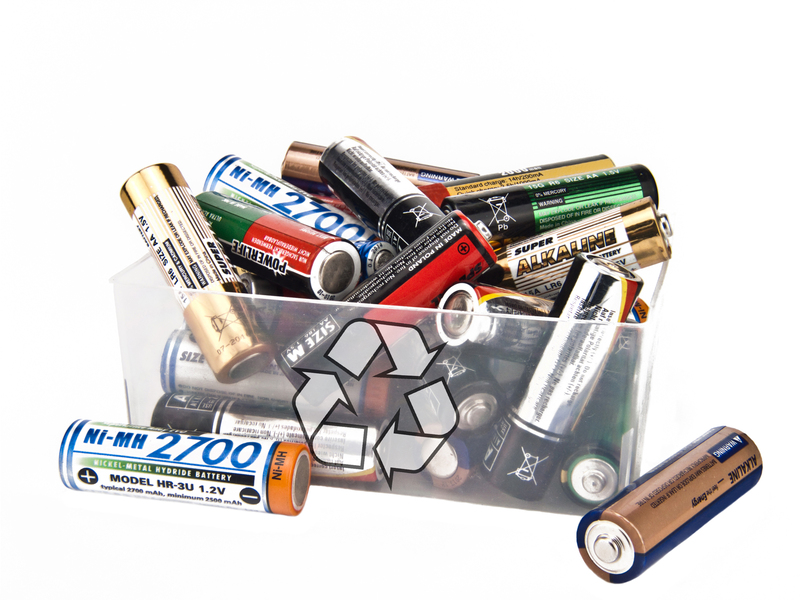The Eco-Friendly Impact of E-Waste Recycling
As our reliance on electronic gadgets continues to grow, so does the mountain of electronic waste, or e-waste, that we generate each year. Luckily, e-waste recycling offers a pathway to manage this environmental challenge while also delivering various eco-friendly benefits. In this article, we delve into the multiple advantages of e-waste recycling and how it contributes to a more sustainable future.
Understanding E-Waste
E-waste refers to discarded electronic devices and appliances such as smartphones, computers, televisions, and even smaller items like electronic toys. The rapid pace of technological advancement has rendered many devices obsolete in a short period, leading to an increase in e-waste volumes. The improper disposal of these electronics poses environmental hazards due to the presence of toxic substances like lead, mercury, and cadmium.
Why E-Waste Recycling is Crucial
The primary goal of e-waste recycling is to minimize the harmful impact of electronic waste on the environment. By recycling electronics, we not only reduce landfill waste but also conserve natural resources and reduce pollution. Here's why e-waste recycling is crucial in our quest for a sustainable planet:
- Environmental Protection: E-waste contains hazardous materials that can leach into the soil and water if not properly disposed of. Recycling ensures these materials are safely processed and converted into reusable resources.
- Resource Conservation: Electronics are rich in valuable materials like gold, silver, copper, and palladium. Recycling allows us to reclaim these precious metals, reducing the need to mine and manufacture new materials.
- Energy Savings: Extracting and processing raw materials require significant energy. Recycling e-waste can save energy and reduce greenhouse gas emissions compared to producing new products from virgin resources.
- Economic Benefits: The recycling industry creates jobs and stimulates economic growth by creating a market for recycled materials and refurbishing usable electronics.

The Process of E-Waste Recycling
Understanding the e-waste recycling process helps illustrate its eco-friendly impact. The process generally involves several key stages:
Collection and Transportation
E-waste recycling begins with the collection of electronic waste, which can be achieved through various means such as drop-off points, community collection events, and retail take-back programs. Once collected, e-waste is transported to recycling facilities for further processing.
Sorting and Dismantling
At the recycling facility, e-waste is sorted based on categories and materials. Manual dismantling is often employed to safely remove and separate different components such as circuit boards, batteries, and plastics. This stage is critical for ensuring hazardous materials are properly handled.
Shredding and Material Recovery
After sorting, e-waste is often shredded to aid in the further separation of metals and plastics. Advanced technologies like magnetic separation, eddy current separation, and optical sorting help recover valuable materials efficiently. Metals like copper, aluminum, and precious elements are extracted and sent for refining and reuse.
The Benefits of E-Waste Recycling
From reducing environmental impact to creating economic opportunities, the benefits of e-waste management extend far and wide. Below are some notable advantages:
Minimizing Landfill Growth
By diverting electronic waste from landfills, recycling reduces the amount of waste that contributes to landfill growth. This is a critical step in managing limited landfill space and reducing soil and water pollution from leaching hazardous substances.
Promoting Sustainability
The recovery and reuse of materials from e-waste contribute to the circular economy. By closing the loop, we reduce the demand for new resources, decrease energy consumption, and promote sustainable consumption patterns.
Encouraging Environmental Awareness
Recycling programs create opportunities to educate the public about the importance of proper e-waste disposal and the advantages of sustainability. By raising awareness, we can encourage responsible consumer behavior and foster a culture of recycling and reusing.
Generating Economic Value
The e-waste recycling industry supports economic growth by creating jobs in recycling facilities, driving innovation in recycling technologies, and fostering industries focused on refurbishing and reselling electronics. Additionally, recovered materials can be sold, providing revenue streams for businesses engaged in recycling.

Challenges in E-Waste Recycling
While the eco-friendly impact of e-waste recycling is substantial, challenges remain in optimizing and expanding these efforts. Some of the primary challenges include:
- Consumer Awareness: Many consumers are not aware of e-waste recycling options or the importance of doing so. Addressing this knowledge gap is crucial to increasing recycling rates.
- Logistical Barriers: The efficient collection and transportation of e-waste require well-organized logistical systems, which can be challenging to coordinate, especially in areas with limited access to recycling facilities.
- Technological Limitations: The recycling of complex electronic devices requires advanced technologies and processes, which can be expensive and difficult to scale.
- Informal Recycling Sector: In many regions, an informal e-waste recycling sector exists, which can pose safety and environmental challenges due to a lack of proper facilities and regulations.
Conclusion: A Call to Action
The eco-friendly impact of electronic waste recycling is profound, offering a tangible solution to the mounting problem of e-waste and a pathway to sustainability. By recycling our electronics, we contribute to environmental protection, resource conservation, energy savings, and economic growth. However, overcoming the challenges in e-waste recycling requires a collective effort from consumers, businesses, and policymakers to promote widespread adoption of recycling practices.
Through increased consumer awareness, improved logistics, and investments in recycling technologies, we can enhance the effectiveness of e-waste recycling programs, ensuring a healthier and more sustainable planet for future generations. Let us all make a concerted effort to participate in and support e-waste recycling initiatives. Together, we can make a meaningful difference.